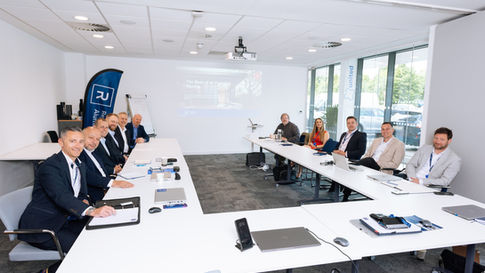Reynaers Aluminium’s global emission reduction targets have officially been validated by the Science-Based Targets initiative (SBTi).

The climate action organisation has confirmed that both the company’s 2019 baseline targets, as well as its ambitious 2030 goals, meet the strict standards and have been approved following a 15-month process.
Reynaers Group’s sustainability goals are among the most ambitious targets within the SBTi programme and include reducing scope one and two ‘direct’ carbon emissions by 46.2%, and scope three ‘indirect’ carbon emissions by 55% per tonne of product by 2030, starting from a baseline of 2019.
The Science-Based Targets initiative (SBTi) is an environmental partnership between the WWF and the United Nations that sets emission reduction targets for businesses all over the world to support companies with clear-cut, science-based goals that help them operate more sustainably.
Reynaers’ targets are in line with the 2015 Paris Agreements that state that global warming should be limited to 1.5°C to prevent the worst consequences of climate change. Only 4,263 companies across the world have had reduction targets approved by the SBTi, and Reynaers Group is one of them.

Richard Hall, Managing Director of Reynaers Aluminium UK, said: “Reynaers is committed to taking action to support climate change targets, not just talk about them, and having our targets validated by the SBTi clearly demonstrates our determination to achieve real, quantifiable change in our operations.
“Through promoting the need for more sustainable solutions in the fenestration and construction industries, introducing thermally efficient, Cradle to Cradle products and taking steps towards operating more sustainably, including through our supply chain, Reynaers Aluminium UK is committed to supporting these ambitious targets and will work hard to continue to do so in the future.”
.png)








































.png)










